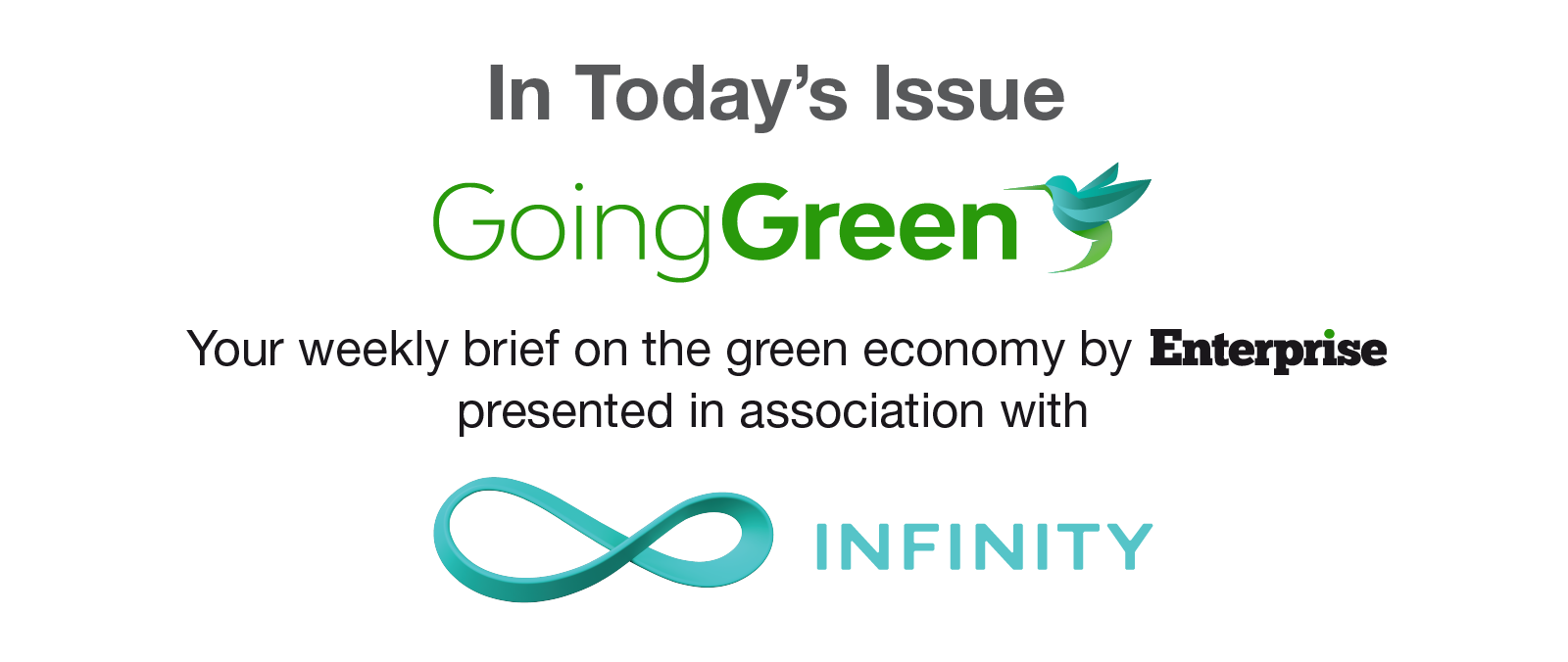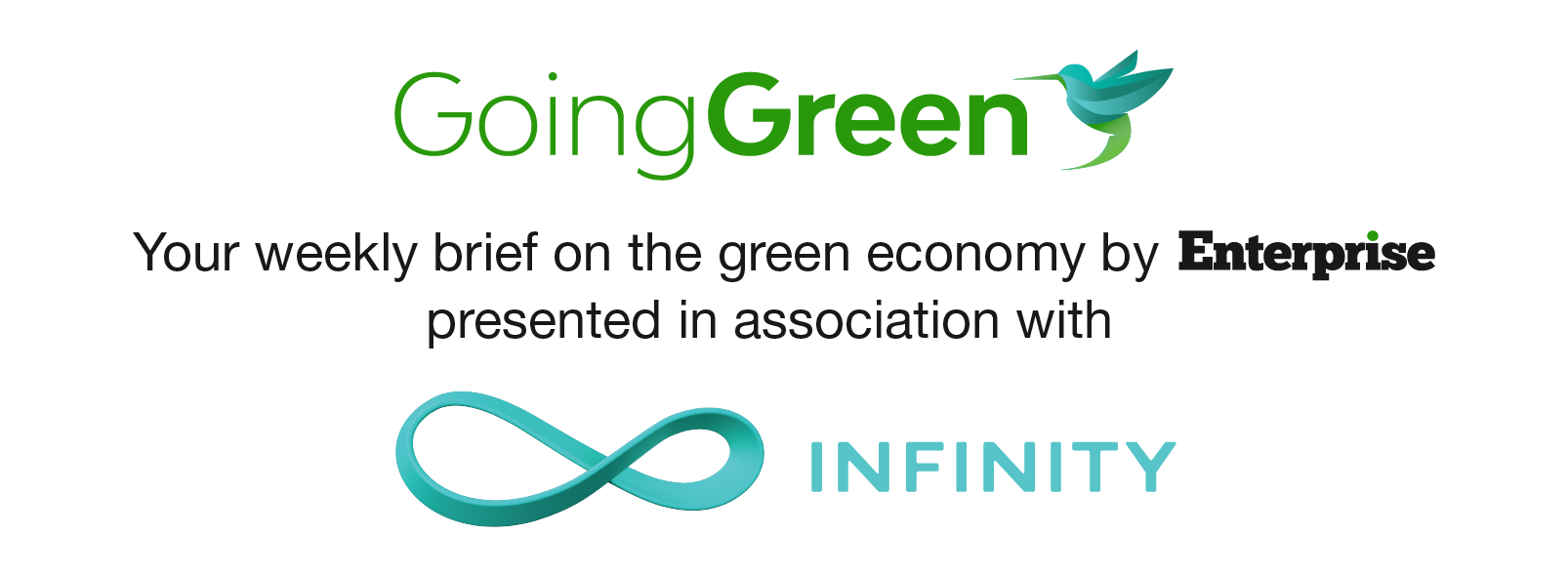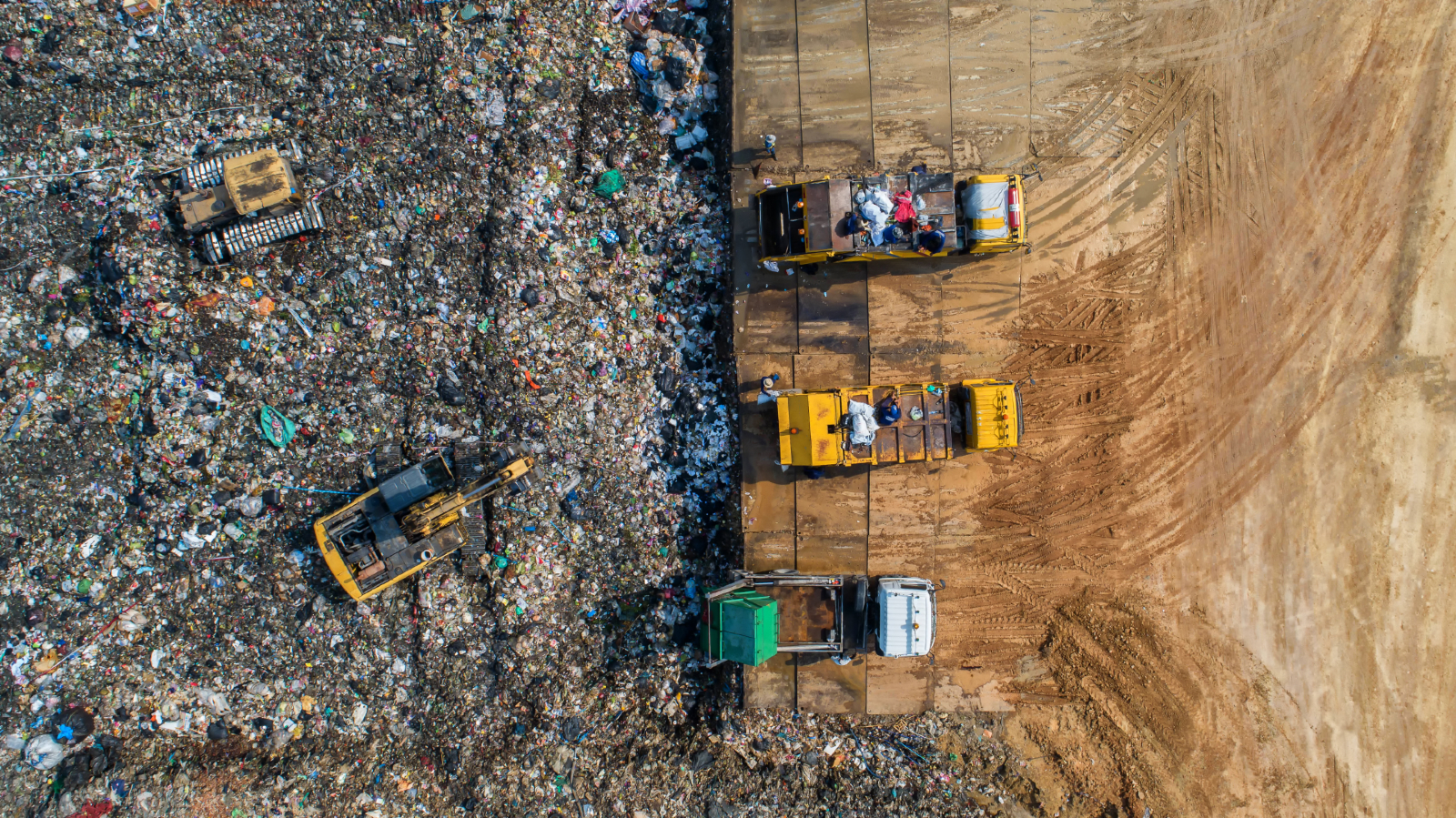- We finally have a private-sector minimum wage. (Policy)
- Egypt doesn’t need to tap lenders for the time being, says IMF. (Economy)
- The delta variant is causing huge problems for Africa. (Covid Watch)
- Has Ethiopia resumed filling the Grand Ethiopian Renaissance Dam? (Last Night’s Talk Shows)
- House gives early nod to bill permitting automatic dismissal of civil servants linked to Ikhwan. (Legislation Watch)
- El Sisi holds first call with Israel’s new PM. (Diplomacy)
- PPP tender for the Tenth of Ramadan City dry port launches today. (What We’re Tracking Today)
- Is the new Waste Management Act the solution for a fragmented industry? (Going Green)
- Planet Finance— US stocks hit new record highs.

Tuesday, 29 June 2021
A private sector minimum wage is smart policy. Mandatory bonuses? Not so much.
TL;DR
WHAT WE’RE TRACKING TODAY
Good morning, friends, and welcome to the next-to-last workday of the week. We hope you’re looking forward to the long weekend as much as we are.
We’re not typically fans of things that increase costs for businesses. Just about the only thing we dislike more is needless regulatory complexity.
And yet we’re cheering the Madbouly government’s imposition yesterday of a private-sector minimum wage. We’ve long maintained that businesses need to pay a liveable minimum wage, and EGP 2,400 is a step in the right direction. Planning Minister Hala El Said deserves a tip of the hat from all of us this morning for having kept the idea on the agenda and seen it through.
Forget about economic arguments in favour of the minimum wage — a business that cannot pay an adult a wage sufficient to ensure they can eat, find a place to live and clothe themselves is not a business that deserves to be. (With apologies to Norm Ornstein. Elements of his 2013 argument in the Atlantic really stand out in our mind this morning.)
The NCW is allowing businesses to file for exemptions. It should grant them very, very sparingly. Small businesses that have gone legit (who are filing taxes, paying social insurance and wage taxes for their employees, etc) deserve more flexibility than medium and large enterprises, regardless of industry. And any exemptions granted should have a sunset clause beyond which it should be very onerous indeed for a business to ask for an extension — particularly for businesses with larger labor forces.
But please don’t get us started on this “mandatory bonus” thing. Bonuses should be earned for outstanding performance — full stop — not because you have a pulse and happen to be sitting in a seat on a specific calendar date. Using them as a back door to force the private sector to pay more to workers outside the minimum wage (or to substitute for benefits the state is unable or unwilling to provide) is simply a perversion of why bonuses exist. They are by definition a form of variable compensation that reward outstanding performance, not entitlements that should be booked as fixed costs.
We have a rundown in this morning’s Speed Round on how the minimum wage will work and expect to have more news and analysis in the days to come.
WHAT’S HAPPENING TODAY-
A tender will be launched today for the establishment of the Tenth of Ramadan City dry port and logistics hub under a public-private partnership model, the Finance Ministry said in a statement. Cabinet had given preliminary approval to the 250-feddan dry dock and logistics hub in early June, shortly before greenlighting to move forward with a tender to establish the project. Five consortia are reportedly interested in the tender, including one led by Elsewedy Electric and DB Schenker, one led by Dubai’s DP World, and another by China International Marine Containers Group.
It’s the final day of the Big 5 Construct Egypt at the Cairo International Convention Center.
THE BIG STORY IN THE REGION- The Ethiopian government has announced an immediate, unilateral ceasefire in the conflict in the restive Tigray region, which almost eight months ago saw conflict erupt between the government and separatist forces. Government troops have left the regional capital after Tigrayan rebels reportedly ejected the interim administration. The story is front news everywhere from Reuters and the AP to the BBC and the FT.
THE BIG STORY INTERNATIONALLY- Facebook 1. Antitrust 0. Efforts to curb the market power of US tech giants suffered a blow yesterday after a federal judge tossed out two antitrust lawsuits seeking to break up Facebook. The Federal Trade Commission and a coalition of 46 states filed the cases claiming that the social media giant was using its market power to “systematically” eliminate its competitors and were seeking the forced divestiture of Instagram and WhatsApp. However, the judge ruled that the lawsuits were “legally insufficient” and were not able to prove that Facebook wields monopoly power. The FTC is able to appeal and refile its case in the next 30 days.
Facebook’s shares surged 4.2% on the news, pushing its market cap above USD 1 tn for the first time.
The news is everywhere in the global business press: Bloomberg and the FT, NYT and the WSJ.
|
** CATCH UP QUICK with the top stories from yesterday’s edition of EnterprisePM:
- The Supreme Constitutional Court (SCC) now has the power to block local implementation of international arbitration rulings after its authority was augmented in legislation passed by the House.
- The long-awaited Sovereign Sukuk Act was greenlit by MPs yesterday, paving the way for the government’s inaugural sukuk sale.
- Ukraine’s Vazhmash is serious about saving Egyptian Iron and Steel and has fielded an offer to get the defunct state-owned company back up and running.
CIRCLE YOUR CALENDAR-
The Cairo International Book Fair will open its doors at the Egypt International Exhibition Center tomorrow. The two-week event will run through to 15 July.
The British Egyptian Business Association (BEBA) is organizing a virtual education week from 5-6 July with three seminars planned. The first, taking place at 10am on 5 July, will discuss skills-based learning while the future of investment in education will be the topic on the table at 12:30pm the same day. On 6 July, a talk on the digitalization of education in Egypt will be held at 12pm.
The Clean Energy Business Council (CEBC) MENA is holding a webinar titled Energy Efficiency in the MENA region: Status and Outlook on 6 July at 3:30pm.
Check out our full calendar on the web for a comprehensive listing of upcoming news events, national holidays and news triggers.

*** It’s Going Green day — your weekly briefing of all things green in Egypt: Enterprise’s green economy vertical focuses each Tuesday on the business of renewable energy and sustainable practices in Egypt, everything from solar and wind energy through to water, waste management, sustainable building practices and how you can make your business greener, whatever the sector.
In today’s issue: Will Egypt’s new Waste Management Act transform an industry that’s long been plagued by decentralization and declining profits? The act’s executive regulations are currently being reviewed by cabinet, and expected to be approved within the coming 6-8 weeks. Today, we break down how the act is setting up a national structure to manage waste collection and disposal, setting stricter licensing requirements and non-compliance penalties, and leveraging financing to address profitability challenges. But some say more clarification is needed, particularly when it comes to the act’s enforceability and the role of the informal economy.
POLICY
We finally have a private-sector minimum wage

Private-sector workers are getting a minimum wage: Employees of private-sector companies will for the first time receive a minimum wage starting from the beginning of next year, the Planning Ministry announced yesterday. From 1 January 2022, companies will need to pay workers at least EGP 2.4k per month, according to a decision by the National Council for Wages (NCW) that could impact some 12.6 mn workers.
This is in line with public sector wage hikes: The minimum wage for public sector employees will rise to EGP 2.4k from EGP 2k from the beginning of FY2021-2022 next month.
The private sector is also getting new bonuses: The council, headed by Planning Minister Hala El Said, also decided to put in place minimum bonuses for private sector employees equal to 7% of the basic salary. These bonuses will be paid out bi-annually, with the government requiring companies to pay 3% on 1 July and the remaining 4% in January, Manpower Minister Mohamed Saafan said in a phone-in to Kelma Akhira last night (watch, runtime: 8:35).
The minimum wage doesn’t go into effect until next year, but the bonus system is a “now” thing, it seems: Companies must start to pay out the new bonuses as of the start of FY2021-2022, not the start of 2022, Saafan said, adding that this means that companies that have already agreed to pay out bonuses this year will not have to comply with the new rules until next year.
The caveat: Not all businesses will have to comply with the decision. Employers can request an exemption from paying the minimum wage if they can prove that they can’t afford the added cost. They have until October to submit a complaint to the council’s complaints committee.
The decision will be legally enforceable, Khaled El Fiky, a NCW board member and head of the engineering syndicate, told us. The council usually issues guidelines that aren’t legally binding, but this decision will be backed by an enforceable ministerial decree that will make the minimum wage binding for non-exempt employers, he said.
We’re not sure how businesses will be penalized for failing to comply: Nour Shams El Din, head of litigation at Dreny & Partners Law Firm, told us that a subsequent decision by El Said will hold employers accountable for failing to pay the minimum wage.
A long time coming: Though the proposals were drafted last month, the move has been several years in the making. The NCW had met back in 2019 to discuss implementing a private sector minimum wage, with an eye to set a minimum salary of EGP 2k at the time. The proposal to impose a binding minimum wage was put on the back burner with the onset of the pandemic.
ECONOMY
Egypt won’t need to tap lenders for the time being, says IMF

Egypt does not need additional external financing at the moment thanks to structural policy and fiscal reforms that have course-corrected the economy, IMF mission chief Celine Allard said yesterday during a virtual press conference, Masrawy reports. Egypt, which completed a three-year, USD 12 bn IMF program in 2019, again tapped the Fund last year as covid-19 hit. The government borrowed another USD 8 bn from the lender to shore up its finances and protect its economy from the economic shock caused by the pandemic. The sum included a USD 5.2 bn standby facility and a USD 2.8 bn “rapid financing instrument” to total USD 8 bn.
The USD 5.2 bn standby loan program is now over: The presser was held to answer questions on the disbursal of the USD 1.6 bn third and final tranche of the one-year package, which was approved by the IMF’s executive board last week. Approved in June 2020, the standby loan program has supported Egypt’s balance of payments through the worst of the pandemic and paid for vital health and social programs.
An exact date for disbursal remains unclear, but Finance Minister Mohamed Maait said on Wednesday that Egypt would not wait longer than a week to receive it.
The main challenges going forward: Egypt’s slow vaccine rollout and its potential impact on the recovery of the tourism sector, and the country’s high levels of public debt will present the biggest challenges to the government going forward, Allard said. Almost six months into the vaccination campaign, only 7% of eligible people have received one shot of a covid jab, something that will likely hold the tourism sector back from mounting a full recovery.
Egypt doesn’t think the tourism recovery is in jeopardy: Tourism revenues are now expected to come in somewhere between USD 6 bn and USD 9 bn in 2021, thanks to rising bookings from Eastern Europe and the Gulf, Tourism Minister Khaled El Anany said earlier this month. The announcement was an upwards revision of Egypt’s tourism revenue targets for 2021, which El Enany had last month put at USD 8 bn. Recovering arrivals are setting us on track to welcome a little over 6 mn visitors by the end of the year.
Next on the reform agenda? Allard said that the government now has to focus on further structural reforms to increase the role of the private sector in the economy — and work on reducing trade barriers to better integrate Egyptian companies into global markets. The government in April announced it would undertake a new round of structural reforms, one that it says will liberalize trade policy, upgrade infrastructure and improve market competition to raise exports and boost the private sector.
LEGISLATION WATCH
House gives early approval to bill permitting automatic dismissal of civil servants linked to Ikhwan
A draft bill to permit the automatic dismissal of civil servants with proven ties to the Ikhwan won initial approval from the House of Representatives yesterday, Masrawy reports. The amendments have been sent to the State Council ahead of a final general assembly vote in an upcoming plenary session.
About the bill: The amendments to the Civil Service Act would allow those with suspected links with any terrorist organization to be temporarily suspended from their positions for up to six months and have half of their pay docked while an investigation is conducted. They could also be permanently dismissed if these links are proven. The amendments were introduced on the heels of several rail incidents, which Transport Minister Kamel El Wazir claimed were due to “extremist elements” in the Railways Authority.
IN OTHER LEGISLATION NEWS- Hold up, are our trademark laws getting a revamp? We may see new amendments to current trademark legislation, as a bill has reportedly been submitted to the House of Representatives for their review, according to Al Shorouk. Amendments to the law, proposed back in 2018 by the government, are now being put forward by the House. It’s not yet clear what changes could be in store.
The government could move to install GPS tracking devices on fishing boats under a proposed bill approved by the House Agriculture and Irrigation Committee during a meeting yesterday, the local press reports. The law, designed to promote sustainable seafood production, will soon be shipped to the House of Representatives for discussion.
DIPLOMACY
El Sisi holds first call with Israel’s new PM
President Abdel Fattah El Sisi held his first phone call with new Israeli PM Naftali Bennett yesterday, emphasizing the importance of preserving the recent ceasefire between Hamas and Israel, according to statements released by both leaders’ offices (here and here). Egypt, which played a key role in ending last month’s conflict, supports the resumption of peace talks between Israel and the Palestinians, El Sisi told Bennett, who became Israel’s prime minister earlier this month. Egypt had earlier pledged USD 500 mn for the reconstruction of properties and infrastructure in Gaza, and has been seeking to turn the Israel-Hamas ceasefire it brokered in late May into a longer-term agreement.
The two leaders agreed to arrange a bilateral meeting soon, Bennett’s office said.
The story got a digital ink in the foreign press, from Reuters and Haaretz to Xinhua and the Jerusalem Post.
IN OTHER DIPLO NEWS- GERD was one of the main topics of conversation for Foreign Sameh Shoukry yesterday. The minister was in Rome to attend a meeting of the global anti-Daesh coalition and discuss efforts to combat the terrorist organization. The foreign minister discussed developments in the dispute with Ethiopia with his US, British, French, Congolese, and Kenyan counterparts.
STARTUP WATCH
Edunation targets Egypt after landing USD 3 mn investment

Jordanian startup Edunation is looking to expand into Egypt after raising USD 3 mn in a funding round led by US-based VC investor Rubix, the company said in a press release (pdf). The startup will also use the money to expand into Oman and Bahrain and bolster its presence in Jordan, Palestine, Qatar, Kuwait, Saudi Arabia and the UAE, the statement said. Edunation also eyes upgrading its online learning management platform and aims to grow its data-science division.
About Edunation: Established in 2013, Edunation is a provider of online and distance learning solutions for pre-school through higher education. It has seen its users surge 1200% since last year amid covid lockdown measures. The company has already raised capital through two early-stage rounds, securing pre-seed and seed funding in 2014 and 2019 from angel investor Abdul Malek Al Jaber.
MOVES
Bank ABC gets acting CEO and MD, Endeavor Egypt appoints new MD

Mohamed Taha has been appointed acting CEO and managing director of Bank ABC Egypt, according to the bank’s new management structure. Prior to this position, Taha was the executive vice president of ABC Bank. Taha succeeds Akram Tinawi (bio) who stepped down from his position on 3 June.
Endeavor Egypt has appointed Heba Ali (LinkedIn) as its new managing director, according to a statement (pdf). Ali — who was previously Endeavour’s entrepreneur selection and growth manager — returns to the organization after serving as founding managing director of Egypt Ventures and vice-chair of Falak Startups.
ENTERPRISE+: LAST NIGHT’S TALK SHOWS
Most of the nation’s talking heads had something to say about the new minimum wage for private-sector workers, announced by the Planning Ministry yesterday, and due to be introduced at the start of 2022. Among those who took note of the news: Kelma Akhira (watch, runtime: 6:42 | 3:30 | 2:40) and Al Hayah Al Youm (watch, runtime: 5:22). We have the full story in this morning’s news well, above.
The rainy season in Ethiopia has begun: Ethiopia resumed filling the Grand Ethiopian Renaissance Dam and is storing about 100 mn cubic meters of water each day after the rainy season began a few days ago, Abbas Sharaky, professor of water resources at Cairo University, claimed on El Hekaya (watch, runtime: 5:00). The reservoir should store water as soon as the rains begin as the spillways are now open in both directions, Sharaky said, noting that the filling process should take two to three weeks. Al Hayah Al Youm had coverage of Foreign Minister Sameh Shoukry’s visit to Rome yesterday to join global talks focused on defeating Daesh (watch, runtime: 6:58 | 1:31).
EGYPT IN THE NEWS
It’s another day of miscellany in the international press this morning:
- The collapse of a condo in Florida last week is being compared to the similar incident in Alexandria on Friday, when an illegally-constructed building collapsed, killing give. (Washington Post)
- Mending fences: President El Sisi’s trilateral summit with Iraq and Jordan in Baghdad on Sunday could be a boon for Egypt-Iraq ties after years of tensions. (Jerusalem Post)
- Human Rights Watch is calling on Egypt to overturn death sentences recently handed out to 12 members of the Ikhwan involved in the 2013 Rabaa sit-in. (HRW)
- Egypt’s agricultural exports overcame covid-19 with a surge in food demand and opening of new markets, Agriculture Ministry Mohamed Al Qirsh has said, (Xinhua)
ALSO ON OUR RADAR
Things we’re keeping an eye on this morning:
- The Tourism Ministry plans to launch by the end of the year a three-year international promotional campaign to revive Egypt’s tourism industry following the covid shutdown.
- Kuwaiti budget carrier Jazeera Airways has requested to begin operating flights to Egypt and seven other new destinations in early August, CEO Rohit Ramachandran said.
COVID WATCH
The delta variant is causing huge problems for Africa
The delta variant is spreading across Africa: A spike in covid-19 cases linked to the highly-contagious delta variant across Africa, which is struggling to obtain enough vaccines, is raising fears that the continent could see a repeat of the tragedy that befell India in April and May, the Wall Street Journal reports. At least 20 African countries are grappling with sharp rises in covid-19 infections, with their case tally already surpassing or looking set to top early-pandemic peaks. In the past week alone, infections across the continent have surged 31%.
The delta variant has been detected in at least 13 of Africa’s 54 nations, and is threatening to become the worst episode of the outbreak for the continent. “It is frightening to see what is going on across the continent,” said John Nkengasong, the director of the Africa CDC. “This is the first time that we are beginning to see countries report that their health system…the hospitals are completely overwhelmed.”
South Africa just reentered a nationwide lockdown to curb the spread of the variant, with the country’s president, Cyril Ramaphosa, warning that the country is in the "grip of a devastating wave," according to Business Insider.
Egypt is yet to see a swell of cases linked to the delta variant, and is continuing to see its infection rate decline. The Health Ministry reported 376 new covid-19 infections yesterday — the lowest daily tally since November — down from 389 the day before. Egypt has now disclosed a total of 280,770 confirmed cases of covid-19. The ministry also reported 33 new deaths, bringing the country’s total death toll to 16,125.
Our covid resilience rating as ranked by Bloomberg has increased slightly: We’re now ranked #33 in the world, up from #38 at the end of April.
Saudi Arabia will start administering the Pfizer / BioNTech vaccine to teenagers aged 12 to 18, the Saudi Health Ministry said on Twitter on Sunday. Saudi Arabia has so far administered 17.2 mn doses covering around 70% of the adult population, and last week began handing out the second dose of the Pfizer vaccine to people over 50.
PLANET FINANCE
US stocks hit fresh record highs yesterday putting them on track for one their best first halves ever, while treasury yields dropped as investor concerns about an end to monetary stimulus eased. Tech companies led the Nasdaq to close almost 1% in the green, while the S&P 500 closed slightly higher after Facebook had two antitrust lawsuits dismissed. Bloomberg and the Financial Times have more.
US policymakers are underestimating the threat of inflation and risk pushing the US economy into a recession, Mohamed El Erian told CNBC yesterday. The Federal Reserve is maintaining the recent spike in domestic and global inflation will be temporary and is being caused by post-lockdown supply bottlenecks, but El Erian believes that policymakers may be mistaken. “I have concerns about the inflation story,” he told Squawkbox. “Every day I see evidence of inflation not being transitory, and I have concern that the Fed is falling behind and that it may have to play catch-up, and history makes you very uncomfortable if you end up in a world in which the Fed has to play catch-up,” he said, suggesting that the economy could be pushed into a recession if the Fed needs to “slam the brakes.”
|
|
EGX30 |
10,274 |
-0.3% (YTD: -5.3%) |
|
|
USD (CBE) |
Buy 15.62 |
Sell 15.72 |
|
|
USD at CIB |
Buy 15.62 |
Sell 15.72 |
|
|
Interest rates CBE |
8.25% deposit |
9.25% lending |
|
|
Tadawul |
10,957 |
-0.1% (YTD: +26.1%) |
|
|
ADX |
6,749 |
+0.6% (YTD: +33.8%) |
|
|
DFM |
2,839 |
-1.1% (YTD: +14.0%) |
|
|
S&P 500 |
4,290 |
+0.2% (YTD: +14.2%) |
|
|
FTSE 100 |
7,072 |
-0.9% (YTD: +9.5%) |
|
|
Brent crude |
USD 74.68 |
-2.0% |
|
|
Natural gas (Nymex) |
USD 3.62 |
+3.5% |
|
|
Gold |
USD 1,778.70 |
-0.1% |
|
|
BTC |
USD 34,395 |
+0.2% (as of midnight) |
THE CLOSING BELL-
The EGX30 fell 0.3% at today’s close on turnover of EGP 1.41 bn (11.4% above the 90-day average). Regional investors were net buyers. The index is down 5.3% YTD.
In the green: GB Auto (+3.5%), Credit Agricole Egypt (+3.1%) and Abou Kir Fertilizers (+2.5%).
In the red: Ezz Steel (-6.0%), Orascom Investment Holding (-5.4%) and Orascom Financial Holding (-3.2%).
Asian markets are almost universally in the red this morning on fears that outbreaks of the delta variant of covid-19 in the region could jeopardize the economic recovery, Reuters says. European and US shares look set to follow them lower later today, according to the futures markets.


Is the new Waste Management Act the solution for a fragmented industry? Egypt’s new Waste Management Act, ratified in October 2020, sets an ambitious framework for waste collection, disposal and recycling, sources tell Enterprise. It aims to resolve structural problems in our waste management strategy, including the lack of nationwide collection infrastructure and declining profits from recycling that followed 2015’s removal of government subsidies. Its executive regulations have been passed to cabinet for review, and are expected to be approved within the next 6-8 weeks, we recently reported.
The act is definitely being perceived as a step in the right direction by private sector waste management companies we’ve spoken with. “The new law effectively sets the rules, roles, and responsibilities, and has encouraged the private sector to enter the market,” says Tarek Barakat, Infinity’s Business Development Manager for waste-to-energy. That said, much is still in limbo. Industry players we've reached out to suggest that more needs to be cleared up, especially when it comes to making it worthwhile for waste management companies to continue operating and viable for outside investment.
Why Egypt needed the new framework: The country has been lacking a unified structure for nationwide waste management, and there hasn’t been a centralized authority that sets rules and guidelines, say multiple sources. Previously, waste management regulations were based on two disparate and outdated laws — the General Public Cleaning Act, which was last updated in 1976, and the Environment Act, last amended in 2009 — Mohamed Nabil Hazzaa, Partner at law firm Sharkawy and Sarhan, tells us.
This state of decentralization has hurt sector efficiency: The industry is currently highly disorganized and informal since waste collection takes place at the level of individual governorates, says Aly Abu Senna, an advisor to the Environment Ministry. Those governorates differ considerably in policies, incentive structures, and how much they make it profitable for industry players to operate, he adds. Much is also done by the informal economy, with uneven standards of waste disposal and recycling applied, according to Abu Senna.
…And profitability: Geocycle Egypt pays rent and electricity to operate on land leased by one governorate, Commercial and Supply Chain Manager Hesham El Garhy tells Enterprise. “We should be working at no charge or even getting paid, because we’re performing an important service by treating governorate waste.” Other governorates operate differently, with some paying waste management companies, he believes.
The new act will provide a single framework: The act is setting up a national structure to manage waste collection and disposal for the first time, says Abu Senna. It’s expanded the role of the Waste Management Regulatory Authority: instead of just being an intermediary, it will now set regulation, collect fees, advise stakeholders, and be authorized to inspect facilities and instigate criminal procedures in the event of violations, says Hazzaa.
So governorate waste disposal will be WMRA-directed: Individual governorates will continue to set their plans for safe waste disposal, but these will be based on general WMRA directives, then approved by a ministerial committee, says Hazzaa. Waste management companies like Geocycle might have to continue to pay user fees, but rates will be centrally reviewed by the ministerial committee, he says. This could initially lengthen the process of finalizing agreements, but it’s a positive step towards standardization, he believes. “You won’t see widely varying terms between one governorate and another.”
It will set out stricter licensing requirements for waste management companies: Waste management companies will have to be licensed by the WRMA to operate legally, and companies producing waste will see penalties enforced if they don’t dispose of it appropriately, says Hazzaa.
And non-compliance penalties for companies wanting to get rid of waste: Penalties for improper waste disposal vary according to the violation, says Hazzaa. For non-hazardous waste, penalties would normally be a fine of EGP 10k-100k, with possible imprisonment for repeat offences. For hazardous waste, penalties could be EGP 100k-1mn, and imprisonment, or even EGP 500k-3mn and imprisonment if waste is dumped in the waterways, Hazzaa says.
The government is planning to spend much more on waste management: Annual revenues from cleaning fees could increase to EGP 8 bn, up from their current EGP 320 mn, under the new act, says Abu Senna.
How will it do this? Let’s just say, your electricity bills will go up: The government is planning to increase the cleaning fees that are tacked on to electricity bills, and then funnel them into government subsidies for waste management companies, Abu Senna and Hazzaa confirm. Cleaning fees will increase to EGP 40 from EGP 2 per month for residential units, and to EGP 100 from EGP 30 for independent commercial units. Fees for government buildings, private schools, hospitals and similar facilities will be capped at EGP 5k per month. And fees for private sector commercial buildings, hotels and similar facilities will be capped at EGP 20k per month, Abu Senna says.
These cleaning fees and 25% of property tax will go into governorate budgets, to contract and pay licensed waste management companies for their services, say Abu Senna and Hazzaa.
And other financial incentives will attract more private sector players, says Abu Senna, although these have not yet been finalized, he notes. Possible incentives include expanding the Investment Act to include tax and customs breaks for waste management companies, along with concessional lending schemes for SMEs, says Hazzaa. “Concessional financing would be particularly interesting for SMEs, because their main problem is funding. Tax and customs would be bigger incentives for companies planning larger investments.”
But will the new act really be more inclusive of the informal economy? It’s unclear. Smaller companies will struggle to obtain operating licenses under the new act’s stricter requirements, says El Garhy. But this means that companies with poor waste disposal practices won’t be able to operate — which he sees as positive, ultimately improving the sector. But the new act has also been touted as being more inclusive of the informal economy. It’s unclear how these two seemingly contradictory aspects of the act will be reconciled, says Hazzaa. “Among the new tasks of the WMRA is studying how to include the informal sector working in waste management in the licensing scheme. We still don’t know how it can be implemented.”
Private sector players are positive, but not necessarily committing to new investment just yet: The new act clarifies many aspects of the waste management system, and creates a clear role for the private sector, says Karim El Sabee, CEO of waste management company Reliance Investments. But the executive regulations need to be seen before the feasibility of new investment can be decided, he adds.
Ultimately, the test of the new act will be how enforceable it is, says Hazzaa. Enforceability is difficult to gauge, but it’s clear the government has thought about many things, he says. “It will require a lot of cooperation between different stakeholders falling under different ministries, which could be challenging. But I think it will all come down to political will, which I see being there, specifically with waste management.”
Your top climate stories for the week:
- Green bonds: The first local green bonds sale worth USD 100 mn could start within two to three weeks.
- ESG reporting: The FRA could soon ask companies listed on the EGX, as well as non-banking financial institutions under its purview, to begin making ESG disclosures.
- New waste-to-energy plant: Egypt launched its first waste-to-energy plant in Fayoum, with a capacity of 100 kW/h of electricity with zero carbon emissions.
- Water projects: Egyptian and Russian officials discussed potential cooperation in water treatment, waste recycling and air purification projects
CALENDAR
26-29 June (Saturday-Tuesday): The Big 5 Construct Egypt, Cairo International Convention Center, Cairo, Egypt. The Big 5 Egypt Impact Awards will also be taking place at the event on 27 June.
29 June (Tuesday): The London School of Economics (LSE) discussion “Policy Reform in the Making: Stakeholder Engagement through Economic Diplomacy” from 3pm-4:15pm. You can register through this link.
30 June (Wednesday): The IMF will complete a second review of targets set under the USD 5.2 bn standby loan approved in June 2020 (proposed date).
30 June (Wednesday): 30 June Revolution Day.
30 June- 15 July: The Cairo International Book Fair, Egypt International Exhibition Center.
July + August: Thanaweya Amma exams take place.
1 July: (Thursday): National holiday in observance of 30 June Revolution.
1 July (Thursday): Large taxpayers that have not yet signed on to the e-invoicing platform will suffer a host of penalties, including removal from large taxpayer classification, losing access to government services and business, and losing subsidies.
1 July (Thursday): Deadline for 17 EGX-listed companies to file their 1Q2021 earnings.
1-10 July (Thursday-Saturday): The government’s fuel pricing committee will meet to announce 3Q prices.
4 July (Sunday): Ismailia Economic Court to hold hearing on Ever Given compensation case.
Mid-July: Legislative session expected to end.
19 July (Monday): Arafat Day (national holiday).
21 July (Wednesday): Clean Energy Business Council’s webinar Women entrepreneurs in clean energy (3pm)
20-23 July (Tuesday-Friday): Eid Al Adha (national holiday).
23 July (Friday): Revolution Day (national holiday).
23 July-11 August (Friday-Wednesday): Tokyo 2020 Olympics.
2-4 August (Monday-Wednesday): Egypt is hosting the Africa Food Manufacturing exhibition at the Egypt International Exhibition Center.
5 August (Thursday): The CBE’s Monetary Policy Committee will meet to review interest rates.
9 August (Monday): Islamic New Year.
12 August (Thursday): National holiday in observance of the Islamic New Year.
3-5 September (Friday-Sunday): The World Karate Federation will hold the third competition of the 2021 Karate 1-Premier League in Cairo.
12-15 September (Sunday-Wednesday): Sahara Expo: the 33rd International Agricultural Exhibition for Africa and the Middle East.
15 September (Wednesday): The CFO Leadership & Strategy Summit is taking place in Egypt.
16 September (Thursday): The CBE’s Monetary Policy Committee will meet to review interest rates.
30 September-2 October (Thursday-Saturday): Egypt Projects 2021 expo, Egypt International Exhibition Center, Cairo, Egypt.
30 September-8 October (Thursday-Friday): The Cairo International Fair, Cairo International Conference Center, Cairo, Egypt.
1 October (Friday): Businesses importing goods at seaports will need to file shipping documents and cargo data digitally to the Advance Cargo Information (ACI) system.
1 October (Friday): Expo 2020 Dubai opens.
6 October (Wednesday): Armed Forces Day.
7 October (Thursday): National holiday in observance of Armed Forces Day.
12-14 October (Tuesday-Thursday): Mediterranean Offshore Conference, Alexandria, Egypt.
18 October (Monday): Prophet’s Birthday.
21 October (Thursday): National holiday in observance of the Prophet’s Birthday.
24-28 October (Sunday-Thursday) Cairo Water Week, Cairo, Egypt.
27-28 October (Wednesday-Thursday) Intelligent Cities Exhibition & Conference, Royal Maxim Palace Kempinski, Cairo, Egypt.
28 October (Thursday): The CBE’s Monetary Policy Committee will meet to review interest rates.
30 October – 4 November (Saturday-Thursday): The first edition of Race The Legends, Egypt.
1-3 November (Monday-Wednesday): Egypt Energy exhibition on power and renewable energy, Egypt International Exhibition Center, Cairo, Egypt.
November: Egypt will host another round of talks to reach a potential Egyptian-Eurasian trade agreement, which can significantly contribute to increasing the volume of Egyptian exports to the Russia-led bloc that includes Armenia, Belarus, Kazakhstan and Kyrgyzstan.
1-12 November (Monday-Friday): 2021 United Nations Climate Change Conference (COP26), Glasgow, United Kingdom.
29 November-2 December (Monday-Thursday): Egypt Defense Expo.
12-14 December (Sunday-Tuesday): Food Africa Cairo trade exhibition, Egypt International Exhibition Center, Cairo, Egypt.
13-17 December: United Nations Convention against Corruption, Sharm El Sheikh, Egypt.
16 December (Thursday): The CBE’s Monetary Policy Committee will meet to review interest rates.
14-16 February 2022 (Monday-Wednesday): Egypt Petroleum Show, Egypt International Exhibition Center, New Cairo, Egypt.
1H2022: The World Economic Forum annual meeting, location TBD.
May 2022: Investment in Logistics Conference, Cairo, Egypt.
27 June-3 July 2022 (Monday-Sunday): World University Squash Championships, New Giza.
**Note to readers: Some national holidays may appear twice above. Since 2020, Egypt has observed most mid-week holidays on Thursdays regardless of the day on which they fall and may also move those days to Sundays. We distinguish below between the actual holiday and its observance.
Enterprise is a daily publication of Enterprise Ventures LLC, an Egyptian limited liability company (commercial register 83594), and a subsidiary of Inktank Communications. Summaries are intended for guidance only and are provided on an as-is basis; kindly refer to the source article in its original language prior to undertaking any action. Neither Enterprise Ventures nor its staff assume any responsibility or liability for the accuracy of the information contained in this publication, whether in the form of summaries or analysis. © 2022 Enterprise Ventures LLC.
Enterprise is available without charge thanks to the generous support of HSBC Egypt (tax ID: 204-901-715), the leading corporate and retail lender in Egypt; EFG Hermes (tax ID: 200-178-385), the leading financial services corporation in frontier emerging markets; SODIC (tax ID: 212-168-002), a leading Egyptian real estate developer; SomaBay (tax ID: 204-903-300), our Red Sea holiday partner; Infinity (tax ID: 474-939-359), the ultimate way to power cities, industries, and homes directly from nature right here in Egypt; CIRA (tax ID: 200-069-608), the leading providers of K-12 and higher level education in Egypt; Orascom Construction (tax ID: 229-988-806), the leading construction and engineering company building infrastructure in Egypt and abroad; Moharram & Partners (tax ID: 616-112-459), the leading public policy and government affairs partner; Palm Hills Developments (tax ID: 432-737-014), a leading developer of commercial and residential properties; Mashreq (tax ID: 204-898-862), the MENA region’s leading homegrown personal and digital bank; Industrial Development Group (IDG) (tax ID:266-965-253), the leading builder of industrial parks in Egypt; Hassan Allam Properties (tax ID: 553-096-567), one of Egypt’s most prominent and leading builders; and Saleh, Barsoum & Abdel Aziz (tax ID: 220-002-827), the leading audit, tax and accounting firm in Egypt.






